1. Ray-Ban
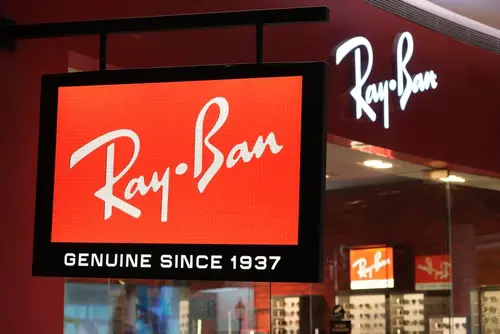
Ray-Ban sunglasses have marketed themselves using patriotic imagery, especially around summer holidays. Campaigns often feature beach scenes, American cities, or youthful freedom, tying the brand to an aspirational American lifestyle. Wearing Ray-Bans is associated with coolness, independence, and national pride.
Limited-edition releases sometimes incorporate American flag designs, reinforcing the link between fashion and patriotism. By merging style with national symbolism, Ray-Ban appeals to both identity and aesthetic preferences. It’s a clever way to make sunglasses feel culturally significant beyond utility.
2. Coca-Cola

Coca-Cola has a long history of leaning on American pride in its marketing. During World War II, the company heavily promoted Coke as a patriotic beverage, even sending millions of bottles to soldiers overseas. The message was clear: drinking Coke was a small way to support the troops and the country. This strategy helped cement Coca-Cola as an American cultural icon.
Fast forward to the 2000s, and the company continued using patriotism during events like the Olympics and Fourth of July campaigns. Ads often featured red, white, and blue imagery, emphasizing unity and national pride. Coca-Cola’s ability to tap into collective sentiment made it more than just a soda—it became a symbol of American identity. Critics, however, sometimes accused the brand of commercializing patriotism.
3. Budweiser
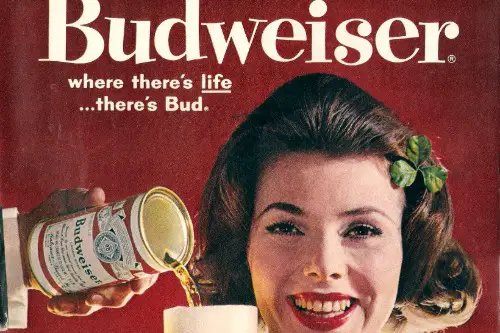
Budweiser has mastered the art of tying beer to American identity. Their Super Bowl commercials frequently highlight themes like freedom, small-town values, or support for the military. The brand often features the iconic Clydesdale horses, evoking nostalgia and Americana. Budweiser’s campaigns show that drinking their beer is part of a shared cultural experience.
After September 11, 2001, Budweiser aired ads showing its support for first responders and the troops, aligning beer consumption with patriotic solidarity. The message was clear: buying Budweiser could be part of honoring the country. While effective, these campaigns sometimes drew criticism for commercializing serious national sentiments.
4. Levi’s
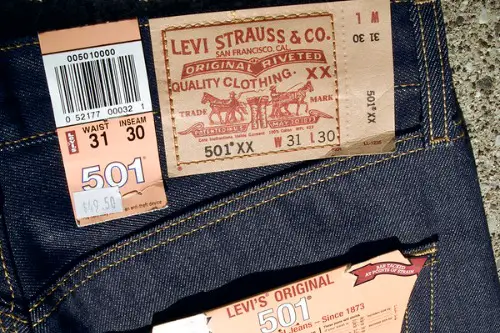
Levi’s has often highlighted its roots in American history, tying its denim to hard work and independence. Ads in the 1990s and 2000s celebrated classic American imagery, from small-town streets to cowboy motifs. The brand suggested that wearing Levi’s wasn’t just fashion—it was a nod to the American spirit. Their messaging positions Levi’s as more than clothing; it’s part of a national identity.
During patriotic holidays, Levi’s occasionally ran campaigns emphasizing “Made in the USA” garments. These messages appealed to consumers wanting to support domestic labor and heritage. It’s a clear example of using nostalgia and national pride to connect emotionally with buyers.
5. Chevrolet
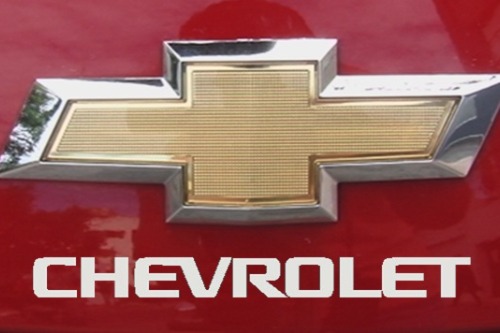
Chevrolet has long linked itself with American culture through “American-made” messaging. Their trucks and SUVs are often marketed as symbols of freedom, strength, and hard work. Ads frequently highlight landscapes like mountains, plains, or highways, reinforcing the idea of American exploration. Chevrolet positions itself as a brand that embodies the nation’s values and lifestyle.
In the early 2000s, Chevrolet ran campaigns celebrating veterans and domestic manufacturing. The company frequently tied purchases to a sense of civic pride, suggesting that buying a Chevy was a patriotic choice. Their approach combines tangible product benefits with symbolic national identity.
6. Gatorade
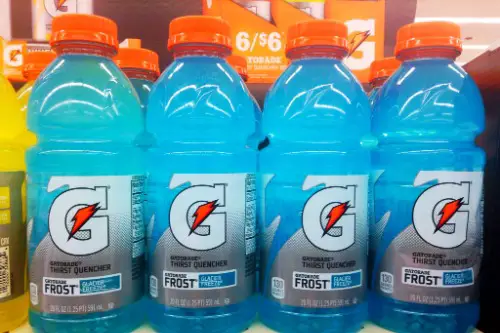
Gatorade has leveraged America’s love for sports and athletic achievement to convey patriotism. Campaigns often highlight U.S. athletes competing internationally or breaking records. The implicit message is that supporting Gatorade is supporting American excellence.
During Olympic years, Gatorade ads emphasize national pride and team spirit, using red, white, and blue imagery. This strategy reinforces the idea that consuming their product aligns with celebrating American accomplishments. It’s a subtle, yet effective, way to marry product promotion with national sentiment.
7. Harley-Davidson
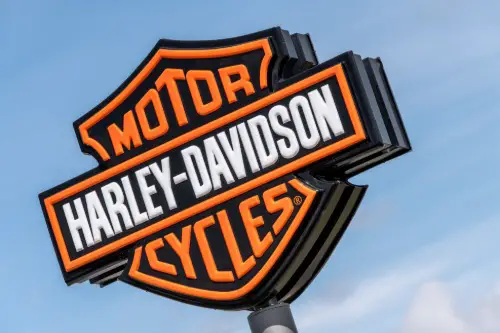
Harley-Davidson thrives on the image of freedom, adventure, and rugged Americana. Its marketing often features open roads, American flags, and a rebellious spirit tied to national pride. Owning a Harley isn’t just about transportation; it’s about living an idealized version of American independence.
Patriotic campaigns often target veterans or feature Fourth of July imagery, creating a strong emotional connection. The brand appeals to consumers who see motorcycles as a symbol of American resilience and identity. Harley-Davidson’s messaging blends lifestyle marketing with patriotic undertones.
8. Campbell’s Soup
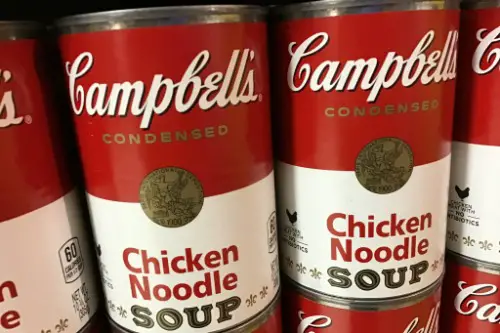
Campbell’s has occasionally leaned on American nostalgia to market its soups. Ads often highlight family meals, community gatherings, and classic recipes passed down through generations. This messaging subtly ties the brand to American tradition and domestic life.
During patriotic holidays, Campbell’s has run campaigns emphasizing shared values and unity. The idea is that a meal of Campbell’s soup can connect people to their roots and national identity. The emotional pull strengthens brand loyalty while evoking familiar American imagery.
9. Kellogg’s
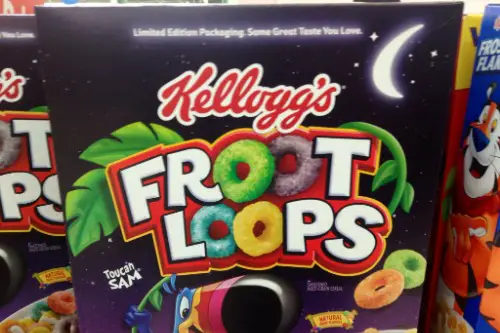
Kellogg’s has used patriotic themes to sell cereal, particularly during national holidays. Early campaigns in the 20th century often tied breakfast to good citizenship and American values. Iconography like flags, eagles, or soldiers was sometimes included in packaging or advertisements. These strategies created a symbolic link between nutrition and national pride.
In modern campaigns, Kellogg’s occasionally emphasizes supporting American farmers or domestic production. Highlighting this aligns their products with ethical consumption and patriotism. Consumers are encouraged to feel that buying Kellogg’s contributes to a larger American narrative.
10. Johnson & Johnson
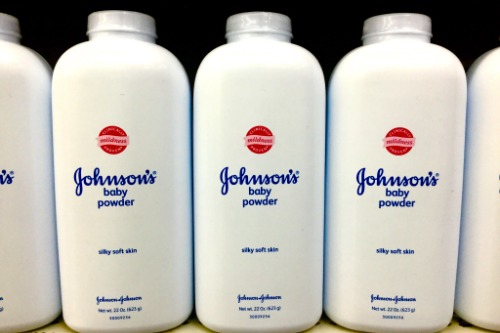
Johnson & Johnson has leveraged patriotism through campaigns emphasizing care for the nation’s families. During wartime or national crises, the company highlighted products used by soldiers or their families. This approach frames the brand as a protector of American well-being.
Ads often show nurses, doctors, and families, linking the brand to community and national resilience. Johnson & Johnson’s messaging blends public service with patriotic sentiment, emphasizing social responsibility alongside commerce. The strategy fosters trust while evoking national pride.
11. Wrangler

Wrangler jeans have long leaned on American western imagery to sell authenticity. Their campaigns feature cowboys, rodeos, and rugged landscapes, symbolizing hard work and independence. Wearing Wrangler is portrayed as embracing traditional American values.
Patriotic campaigns sometimes highlight domestic production or American heritage, appealing to consumers proud of local craftsmanship. The brand connects its products to freedom, outdoor lifestyles, and national identity. Wrangler demonstrates how rugged aesthetics and patriotism can intersect in marketing.
12. Starbucks
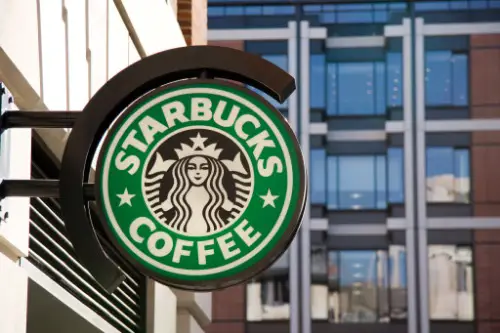
Starbucks has occasionally used patriotism to connect with customers, though in a subtler way than others. During patriotic holidays, the company has released themed cups and promoted veteran hiring initiatives. These efforts align the brand with civic engagement and national pride.
Starbucks also emphasizes American community values through local store events and charity campaigns. By linking coffee consumption to social responsibility, they create a narrative of participating in the American story. This strategy resonates with consumers wanting more than just a beverage—they want an experience tied to shared values.
13. Ford
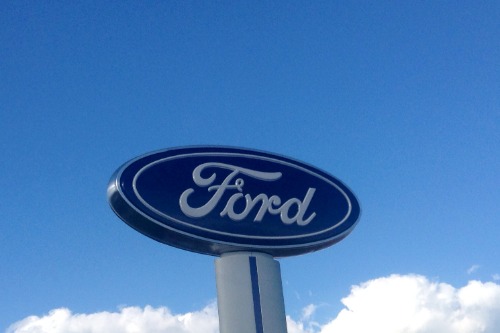
Ford has consistently tied its trucks and cars to American values. The “Built Ford Tough” campaign, especially around Independence Day or national milestones, often emphasizes manufacturing in the U.S. and supporting American workers. The brand leans into the idea that owning a Ford is a statement of loyalty to domestic industry.
In the 2000s, Ford released ads showing soldiers or rural families with trucks, subtly linking patriotism and rugged American lifestyles. These campaigns resonated with audiences looking for products that represented reliability and national pride. Ford’s marketing has often blurred the line between practical appeal and symbolic patriotism.
This post 13 Companies That Tried to Sell Patriotism and Sold Nothing was first published on American Charm.


